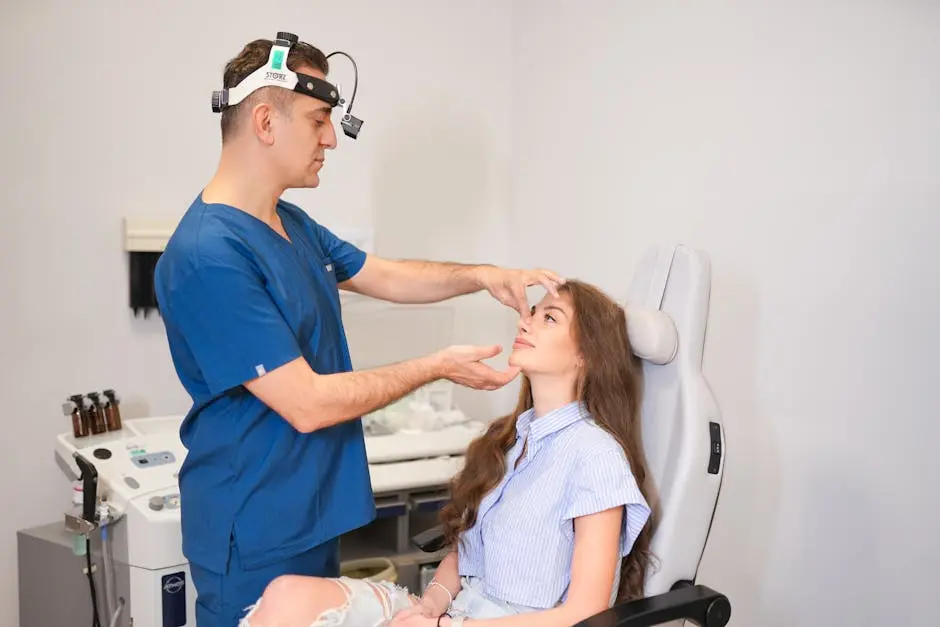Thinking about rhinoplasty? It’s a significant decision that can change your appearance and enhance your confidence. But before you take the plunge, it’s crucial to ask the right questions. Here’s a guide to help you navigate this important process.
1. What Are My Goals for the Surgery?
Understanding your personal motivations and expectations is essential before undergoing rhinoplasty. Are you seeking a change due to personal preference, or are you addressing functional issues like breathing difficulties? It’s important to reflect on the reasons driving your decision. This self-awareness will help you communicate your desires more effectively during consultations.
Moreover, envisioning your ideal outcome can influence the choices you make. Have a clear picture of what you want your new nose to look like; this can aid your surgeon in tailoring the procedure to meet your expectations.
Lastly, ensure your goals are realistic. While rhinoplasty can achieve significant changes, it’s crucial to have a balanced understanding of the results that can be achieved. Your surgeon can guide you in aligning your aspirations with what is feasible.
2. What Are the Risks Involved?
Every surgery comes with risks. Discussing these upfront can help you prepare mentally and physically. It’s natural to feel anxious about the potential complications associated with rhinoplasty, such as bleeding, infection, or unsatisfactory aesthetic outcomes. However, being informed allows you to weigh these risks against the benefits.
Your surgeon should provide insights into both common and rare risks. Understanding how these risks can be minimized will also give you peace of mind. asking them about their experience in managing complications can also highlight their expertise.
Remember, knowledge is power. Instead of feeling overwhelmed by potential outcomes, approach the situation with a proactive mindset. Knowledge can help you make more informed decisions and foster a more positive outlook through the surgery process.
3. How Will My Nose Look After Surgery?
Inquire about the expected results and if digital simulations or illustrations are available. Visual aids can provide a realistic preview of your potential new appearance, alleviating some uncertainty.
It’s also crucial to discuss the time frame for seeing your final results. Immediately after surgery, your nose will go through various stages of healing, and patience is key. Understanding this timeline can help set realistic expectations and ensure a smoother recovery phase.
Additionally, discussing the possibility of adjustments post-surgery is important. Some patients may require minor refinements after healing, so understanding how that process will work can further ease any lingering concerns.
4. What Techniques Will Be Used?
Different techniques can yield different results. It’s important to understand what approach your surgeon will use. For instance, they might opt for an open or closed rhinoplasty technique based on your nose’s specific structure and your desired outcome.
Don’t hesitate to ask why a particular technique is recommended for you. Knowing the reasoning behind the surgical approach can strengthen your trust in your surgeon’s expertise.
5. Who Will Be Performing the Surgery?
Make sure to ask about the experience and qualifications of your surgeon to ensure you’re in good hands. A surgeon’s credentials and experience can significantly affect the outcome of your procedure.
Additionally, discussing the surgical team’s qualifications can also provide reassurance. It’s always a good idea to research their track record, reviews, and any before-and-after galleries they may offer to prospective patients.
6. What Is the Recovery Process Like?
Knowing what to expect during recovery can help you prepare both mentally and logistically. Recovery from rhinoplasty often involves swelling and bruising, and a certain level of discomfort is typical. Knowing how long these symptoms might last can help you plan your return to daily activities.
Also, discuss any restrictions on activities, such as gym workouts or wearing glasses, as these can vary based on the individual. The more informed you are, the smoother your recovery process will likely be.
7. How Long Will the Results Last?
Discuss the longevity of the results and any factors that might affect them over time. Rhinoplasty results can last many years, but understanding potential changes due to aging, weight fluctuations, or other life factors is crucial.
Your surgeon can help set expectations about how your nose’s appearance might evolve and offer tips on how to prolong your results.
8. What Is the Total Cost of the Surgery?
Understanding the financial aspect, including all potential costs, is vital for planning your surgery. Inquire about the surgeon’s fee, anesthesia costs, facility charges, and any follow-up visit expenses.
Don’t forget to ask about financing options or payment plans. Knowing the full scope of expenses can help you avoid any surprises and ensure you’re fully prepared to move forward with your surgery.
9. Are There Alternative Options to Consider?
Sometimes, less invasive procedures can achieve similar results. It’s worth exploring all options. For instance, non-surgical rhinoplasty through fillers may provide a temporary solution worth discussing with your surgeon.
Understanding the pros and cons of all available options will empower you to make the best decision aligning with your desires and situation.
10. What Should I Expect During the Consultation?
Prepare for your consultation by knowing what questions to ask and what information you may need to provide. Being well-prepared can help the conversation flow better and ensure that all your concerns are addressed.
A good rule of thumb is to write down your questions ahead of time and bring a notepad to take notes during the discussion. This method keeps your thoughts organized and makes it easier to review the information later.


